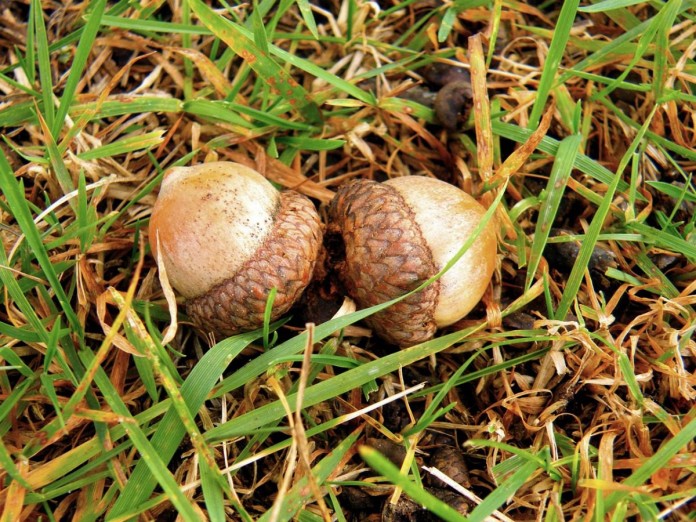LANCASTER, Ohio — The increase in this year’s fall acorn crop means that livestock producers who have oak trees in their pastures need to be on the lookout. Acorns from these trees could cause kidney failure in their animals, particularly in cattle and sheep.
Dangerous nut
Acorn poisoning can be a significant issue for producers, especially in feeder calves that are more susceptible to developing kidney failure after ingesting acorns, Stan Smith, a beef expert and program assistant in agriculture and natural resources at the Ohio State University Extension.
In fact, producers with oak trees in their pastures may want to consider moving their herd away from the dropped acorns or consider fencing off larger areas that are covered with acorns, Smith said.
“Feeder calves weighing from 400 to 700 pounds are susceptible to kidney failure when they consume acorns,” he said. “This is when they are about to be weaned from mothers and are looking for more to eat because pastures are getting thin, and it seems they’ll eat acorns out of curiosity and hunger.”
Older cows with more mature digestive systems seem to be less susceptible, Smith said.
Larger crop
An average of 52.3 percent of white oak trees and 67.8 percent of red oak trees have produced acorns this year, according to the 2014 Ohio acorn mast survey conducted at 38 wildlife areas across the state by the Ohio Department of Natural Resources’ Division of Wildlife. That’s a 33 percent increase in white oak acorn production over last year, and a 31 percent increase in red oak acorn production, the agency said in a statement.
While producers need to try to keep their cattle and sheep from ingesting all acorns, the green acorns seem to be the most toxic, Smith said.
Symptoms of acorn poisoning can include abdominal pain, excessive thirst, frequent urination, lack of appetite, a thin rapid pulse and rough hair coat. Smith said it may be a good idea to move sheep or cattle to a different part of the field until squirrels can carry the acorns away.
How to treat
While there is no antidote for acorn toxicity, producers can provide impacted animals with fluid and electrolytes to keep the animal’s kidneys functioning and give it mineral oil to provide a laxative effect, according to a fact sheet from the West Virginia University Extension Service.
The best bet, Smith said, is to keep the animals away from oak trees and keep them from ingesting acorns altogether. When acorn poisoning reaches the point of kidney failure in the animal, he said, nothing can be done.










